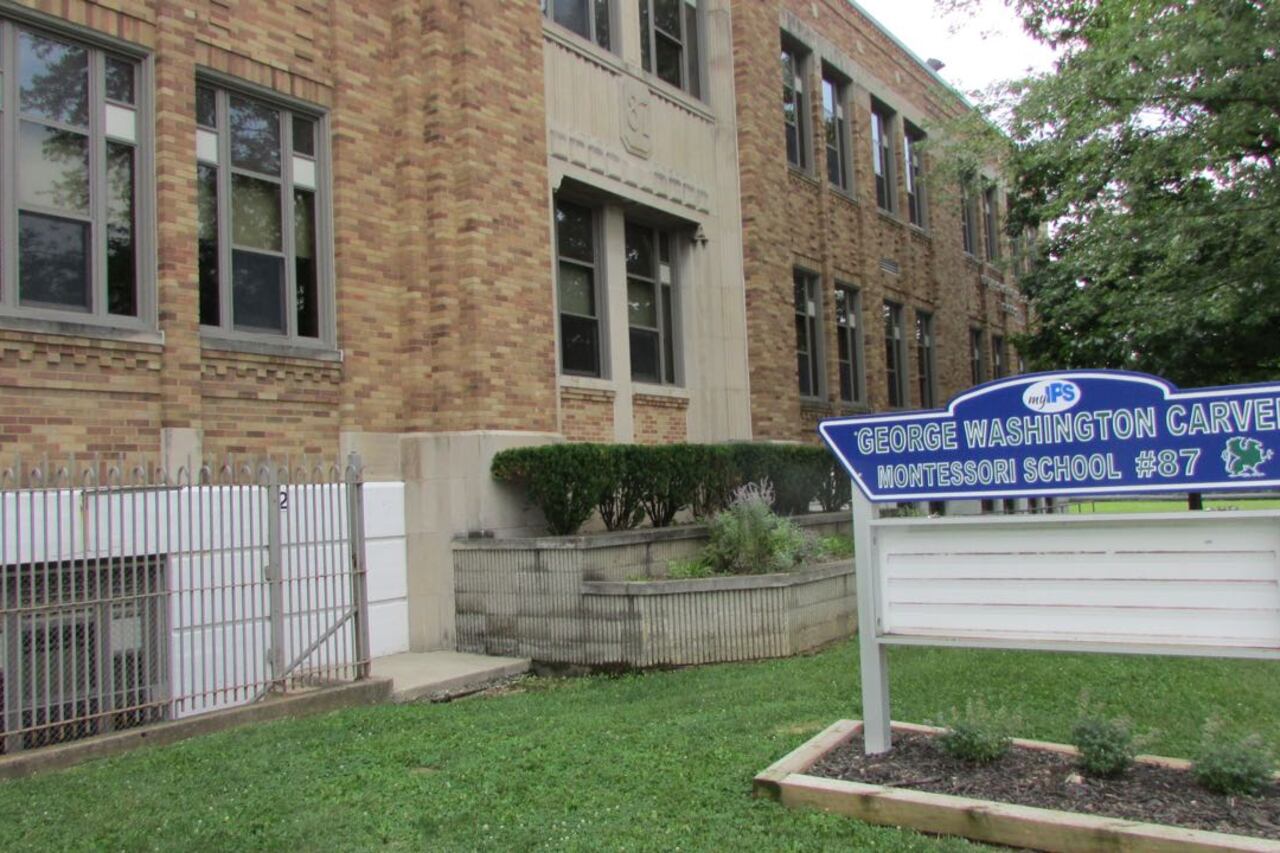Twenty-three school campuses are set to get upgrades or new buildings if voters approve a $410 million Indianapolis Public Schools capital referendum in May.
Earlier this month, the IPS board approved a resolution to begin the process of putting the capital referendum on the ballot. If approved by voters, it will authorize the district to issue bonds, which will yield an estimated $410 million for construction projects.
The request comes four years after voters approved property tax increases for operating and capital expenses that would generate up to $272 million.
District officials are asking for more funds after an assessment revealed that 21% or 14 of its buildings were rated in poor or worse condition in a 2020 assessment.
The referendum is projected to increase property tax rates by up to about 21 cents per $100 of assessed value. Officials note, however, that the overall tax rate for the district’s debt would remain about the same because the district is expected to pay off old debt.
Combined with a separate operating referendum that the district is planning to place on the ballot, officials estimate property taxes for a house valued at $138,500 — what IPS estimates as the median home value in the district — will increase by $72 annually.
Five innovation charter schools on IPS property would collectively receive $57 million from referendum proceeds for building work: Liberty Grove, Adelante Schools at Emma Donnan, KIPP Indy, Urban Act, and Enlace Academy.
IPS has not publicly outlined details of improvements at every school, but has publicized dollar amounts and upgrades at certain schools.
Arlington Middle School would receive the largest investment of $66.4 million. Roughly $61 million of that would address issues such as plumbing, lighting and mechanical deficiencies, Chief Operations Officer William Murphy previously told the board.
The school also would receive $5.7 million for outdoor athletic facilities.
George Julian School 57, which will become a K-5 Center for Inquiry school, would receive $9.2 million to transform its green space and create safer walkways to school — an investment important to the community following the death of 7-year-old Hannah Crutchfield, who was struck and killed by a car in a crosswalk while walking home from school last year. The district also plans to upgrade the buildings.
At Daniel Webster School 46, most of the $12 million would help improve windows, exterior walls, athletic fields, and classrooms, Murphy said.
George Washington Carver Montessori School 87, which will become a preK-5 school, would receive about $27.7 million for projects, including a building addition.
The funding also would expand parking to alleviate a situation that has become “untenable,” Murphy previously told the board. The district has not publicly provided further details.
Emma Donnan Elementary and Middle School, run by Adelante Schools as an innovation charter, would receive $18.9 million to upgrade the roof and security, mechanical, utility, and plumbing systems.
“The building is in generally good condition but the infrastructure needs to be upgraded to address the needs of the student population’s increase,” Murphy said.
The IPS school board is also expected to consider a separate operating referendum, but has not yet brought that for a vote as it irons out specifics, per a statement from IPS. Charter schools have pushed for the district to share more of those proceeds with them.
Amelia Pak-Harvey covers Indianapolis and Marion County schools for Chalkbeat Indiana. Contact Amelia at apak-harvey@chalkbeat.org.







